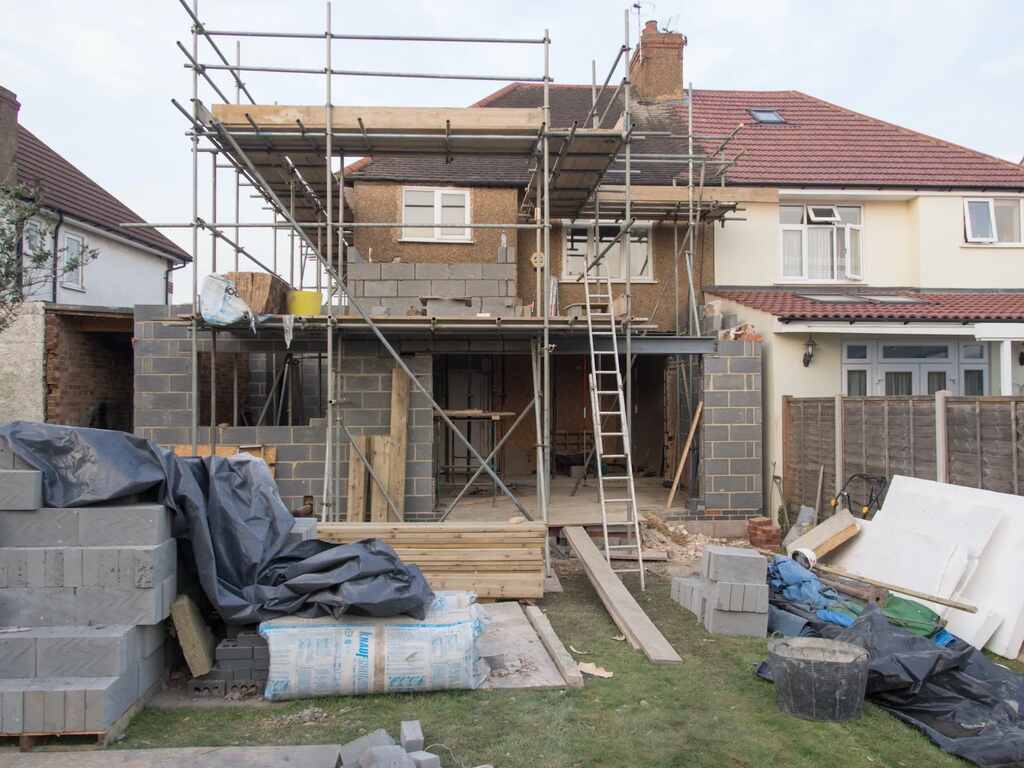When you’re taking on major renovation projects, it’s important to understand the legal implications, especially if your work impacts shared walls or boundaries. In England and Wales, the Party Wall etc act 1996 sets out guidelines to protect both property owners and their neighbours. Hiring a Party Wall Surveyor helps ensure compliance with this Act and can also help in managing potential challenges.
Here is the listed five renovation projects that typically require a Party Wall Surveyor.
1. Building A New Party Wall
Building a new wall that sits on or crosses a property boundary is a significant project regulated by the Party Wall etc. Act 1996. It includes walls constructed directly on or over the shared property line with a neighbour. A Party Wall Surveyor assesses potential impacts on adjacent properties and prepares a Party Wall Award.
This document outlines the scope of work, necessary precautions, and how any issues will be managed. The aim is to prevent disputes by clearly defining responsibilities and ensuring the protection of both properties during and after construction.
2. Major Structural Changes
It’s important to carefully oversee significant structural changes, like removing or altering load-bearing walls. These changes can affect shared party walls, ceilings, and floors. A Party Wall Surveyor reviews the plans to evaluate how the changes might impact neighbouring properties. This ensures that construction methods and materials are appropriate and that protective measures are in place.
3. Work Near Property Boundaries
If you’re carrying out work within 6 metres of a neighbour’s property, it can lead to issues like ground movement or subsidence. This kind of work is regulated by the Party Wall etc Act 1996 to protect nearby buildings. A Party Wall Surveyor will review your plans, check the stability of the soil, and create guidelines to prevent any damage to your neighbour’s property.
4. Loft and Home Extensions
Loft conversions and extensions often involve changes to party walls and ceilings. These projects can significantly affect bordering properties if they involve structural modifications. A Party Wall Surveyor reviews the plans, assesses potential impacts, and ensures legal requirements are met.
They prepare a Party Wall Award detailing work scope, protective measures, and procedures for addressing issues, helping to prevent conflicts and safeguard both parties’ interests.
5. Basement Conversions
Basement conversions, especially those involving extensive excavation and structural work, can affect party walls and structures. The Party Wall etc Act 1996 applies due to their potential impact on neighbouring properties. A Party Wall Surveyor evaluates the conversion plans, including groundwork and structural changes, and prepares a Party Wall Award outlining construction work, protective measures, and procedures for addressing potential issues or damages, ensuring a responsible approach to the conversion.
Why You Need a Party Wall Surveyor?
It’s all because engaging a Party Wall Surveyor is crucial for any renovation involving shared walls or boundaries. They offer expert advice, handle the necessary paperwork, and ensure that your project complies with the Party Wall etc. Act 1996.
This helps in preventing any potential conflicts with neighbours. For a smooth renovation process, especially if you’re in need of local expertise, consulting a Party Wall Surveyor in London is a wise choice.
Conclusion
Their role in assessing risks, documenting agreements, and facilitating communication with neighboring property owners will safeguard your investment and fosters positive relationships. By securing a party wall surveyor, you not only mitigate the risk of future complications but also enhance the likelihood of a successful renovation, keeping your project on track and within legal bounds.

